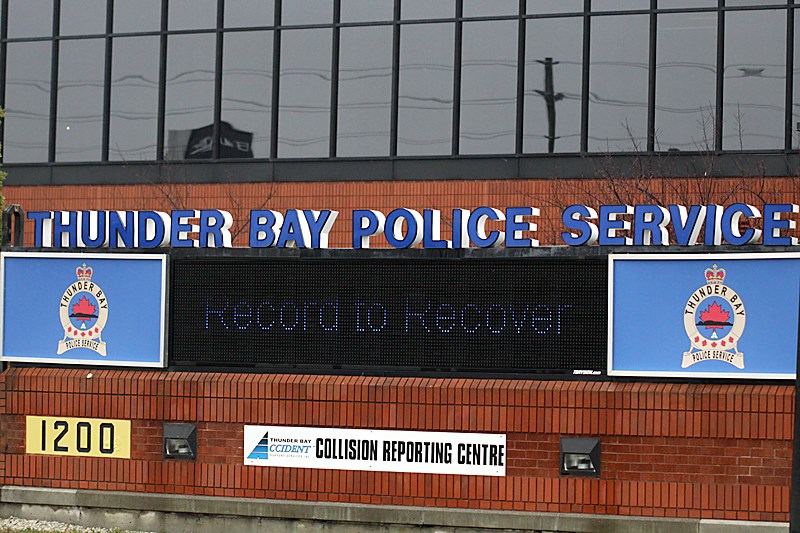THUNDER BAY - Thunder Bay Police Service chief Sylvie Hauth said in order to keep officers and first responders safe when responding to calls for service, she took an all or none approach when it came to accessing the provincial COVID-19 database.
“I think we’ve been as a service very transparent in terms of our use,” Hauth said. “I was categorical that in order to ensure transparency that it was all. It was either all or nothing.”
Last month, it was revealed that the Thunder Bay Police Service accessed the COVID-19 database 14,800 times, which was the second highest rate of searches in Ontario and 10 times higher than the provincial average.
Between the months of April and July, Thunder Bay Police Service dispatchers received 11,274 calls for service, as well as 1,119 calls for fire service.
According to Holly Walbourne, a Thunder Bay Police Service legal representative, the reason the total number of times the database was accessed exceeds the total number of calls for service is because there were instances when the information would be incorrect, so it was searched more than one time for an individual call.
Access to the COVID-19 database, which provided police services with an individual’s name, address, date of birth, and if they have tested positive for the virus, was granted by the provincial government under its Emergency Measures and Civil Protections Act.
The province revoked access to the database on July 19 following legal action launched by human rights groups, including the Canadian Civil Liberties Association, which said it violated individuals' rights to privacy and equality.
Several organizations, including the Black Legal Action Centre, Aboriginal Legal Services, Canadian Civil Liberties Association, and HIV & AIDS Legal Clinic Ontario, reached out directly to the Thunder Bay Police Services Board in a letter expressing concern over the high rate of searches conducted by the Police Service.
Abby Deshman, director of the Criminal Justice Program with the Canadian Civil Liberties Association and Christa Big Canoe, legal advocacy director with Aboriginal Legal Services, also made a deputation to the Police Board during the meeting on Tuesday.
Deshman called the high number of searches an “extraordinary invasion of privacy” and questioned why law enforcement would need to access health records at such a high rate.
“We remain concerned about where the health information that was already accessed has ended up,” she added. “Local residents deserve to know what happened to health information that was accessed.”
“Given the sheer amount there needs to be logic and a response that explains why it was accessed,” Big Canoe added. “We need to know who, why, and how it was accessed.”
Walbourne said the computer-aided dispatch system used by Thunder Bay Police was only updated if a search came back with a positive COVID-19 result.
“I can state we have no COVID data stored,” she said. “We have nothing left on our system.”
“I feel it’s worth reiterating, I take your concerns absolutely about personal health information especially and that being provided to law enforcement,” Walbourne added. “When you are dealing with a pandemic, there needs to be some understanding that it was necessary in that case. We did not store the data.”
Other police services in Ontario, such as the Toronto Police Service, did not access the database at all, but instead outfitted all officers with personal protective equipment in case an individual was infected with the virus.
Hauth said there were shortages of PPE for officers in the early stages of the pandemic and she did not want first responders to have to triage PPE prior to responding to a call.
“It was important for me to arm not only our police officers, but the firefighters and EMS was also accessing to ensure they knew what they were walking into during a call for service,” she said.
Deshman and Big Canoe, along with the other organizations that signed the letter to the Police Board, were calling for an audit on who was accessing the database and for what purposes.
Hauth said the Ministry of the Attorney General conducted three audits of the Thunder Bay Police Service between April and July.
“The ministry was very categorical and very precise in terms of the audit they performed,” she said. “It wasn’t strictly to Thunder Bay. They did it across the province. We were submitted to three audits. The information provided to the ministry audit is more than sufficient.”
